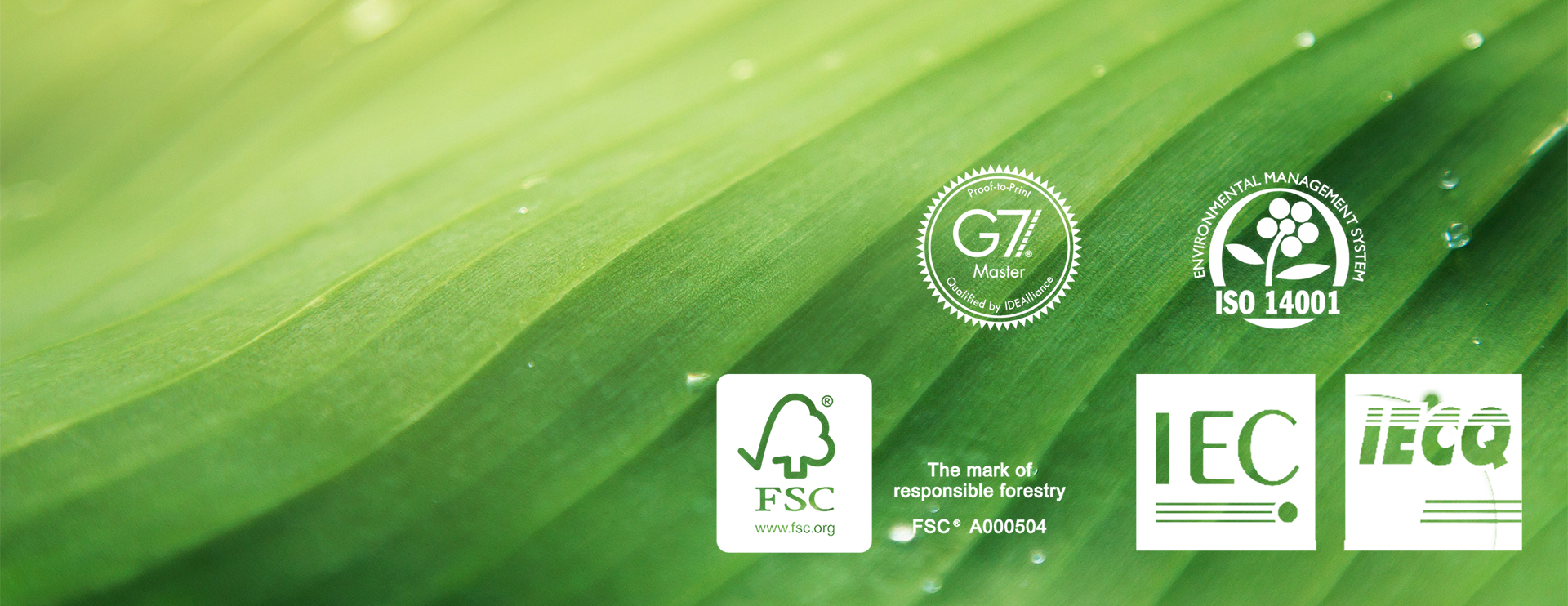Sustainability is one of today’s most important business considerations. Corporations and consumers alike have come to recognize the necessity of using manufacturing processes that have the smallest possible impact on the natural environment. Combined with regulations that can dictate limits on a company’s environmental impact, sustainability is a business imperative that simply cannot go ignored.
But despite the recognized need to follow sustainable business practices, companies have continued to struggle with implementing such initiatives. One reason is that it can be difficult to measure precisely how sustainability is being achieved — and without a clear understanding of how a partner, product, or service contributes to an organization’s overall environmental impact, sustainability can appear to be a vague aspiration.
Environmental certifications are a straightforward way of informing the public about a business’ sustainability practices. Verified by independent organizations, environmental certifications allow customers to understand whether or not a product has been sustainably sourced. This is especially important when it comes to packaging, which accounts for billions upon billions of disposable items impacting environments around the world.
Fortunately, it’s easy to identify when a packaging company follows sustainable business practices. Here are some of the most common environmental certifications to be on the lookout for:
FSC Standard for Chain of Custody Certification
The Forest Stewardship Council (FSC) is a global organization dedicated to protecting forests for future generations. Adhering to a set of 10 principles and 57 criteria, FSC-certified forests comply with a wide range of local laws and principles. To maintain their ecological integrity, they are regularly monitored and assessed. For more than 20 years, the FSC’s forest certification system has helped meet the needs for forest products without sacrificing the environment’s long-term health.
The FSC’s Chain-of-Custody Certification follows the path of forest products throughout the supply chain. This process ensures that certified materials are separated from noncertified materials. For a consumer to purchase an FSC-certified product, each of the end product’s touch points must have followed FSC guidelines throughout the production process. From lumberyards and furniture stores to paper mills and print shops, every step is monitored.
G7 Certified Facilities and Staff
The G7 standard ensures that print products adhere to the same gray balance and neutral tonality. As a means of ensuring that printing devices produce consistent results, G7 certified suppliers help deliver consistent print quality. They also reduce design and printing times, and eliminate excessive waste.
Color consistently is one of the most important aspects of a brand’s identity. If attention to detail that ensures color is accurately represented throughout the production process is not maintained, products and packaging may be perceived as low quality. G7 Certified facilities and staff ensure that color is correctly reproduced. They also help reduce the overall cost of proofing, printing, and shipping by following a set of consistent standards. By preventing errors and ensuring that items are printed accurately, G7 Certified facilities and staff members can prevent excess forest products from being wasted on rework.
Environmental Management System
An Environmental Management System (EMS) allows organizations to meet environmental goals through a clearly defined process framework. Uniquely tailored to an organization’s specific environmental goals, an EMS encourages a consistently refined approach towards complying with environmental policies, preventing pollution, and conserving resources.
The International Organization for Standardization (ISO) 14001 standard specifically addresses environmental management. Built around the continuous improvement cycle of an EMS, ISO 14001 ensures a company’s commitment to environmental policy. It also details its goals and planning, documents implementation procedures, sets evaluation standards, and incorporates review for regular feedback.
IECQ Certified
The International Electrotechnical Commission Quality Assessment for Electronic Components (IECQ) offers approvals and certifications for the manufacturing of high-quality electrical component parts. Many electronic components have historically contained materials that are hazardous to the environment. The IECQ Hazardous Substances Process Management (HSPM) certification helps ensure that companies have documented and demonstrated processes concerning the handling and disposal of such materials.
Lead, mercury, cadmium, and other substances are often restricted or forbidden in manufacturing through government regulations. Our IECQ HSPM certification verifies that our manufacturing process is free of harmful substances like these.
Environmental Certifications Matter
Sustainable manufacturing requires a concerted effort across the entire manufacturing process. Conserving energy and resources takes a team effort. Proper standards ensure that production is responsible and sustainable across a wide range of industries.
While environmental certifications are one key indicator of a truly green packaging supplier, other signs of sustainable manufacturing include achievements around renewable energy and water usage. When choosing a packaging partner, it’s important to consider any and all of their environmental practices to help contribute to a healthier, cleaner planet.











